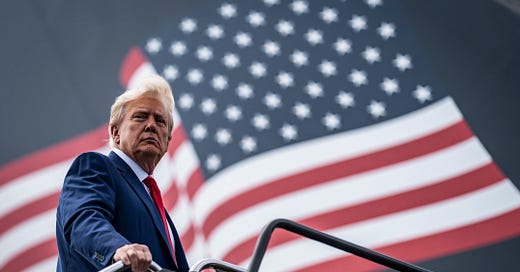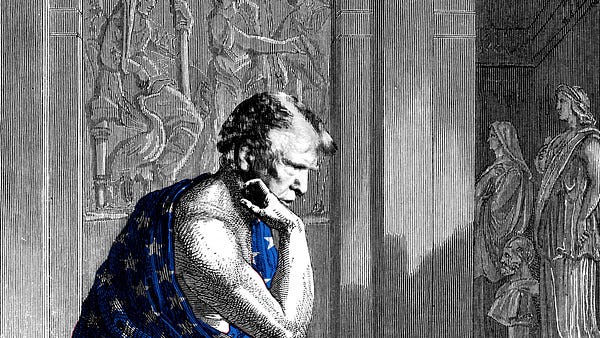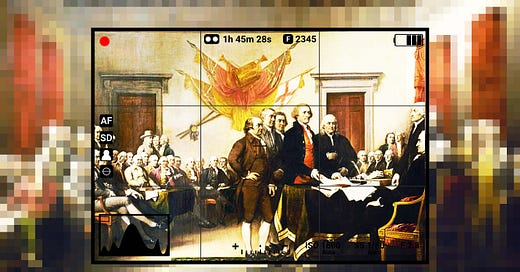
Reading through the indictment of Donald Trump, one is tempted to ask if the man wanted to be caught. It reads like a bad comic novel.
The former president is the bumbling protagonist, scheming with an underling to hide boxes of documents from the FBI and his lawyers. Trump boasts to a writer and publisher that he is showing them a classified document—on a tape in which he consented to being recorded.
America’s state secrets are stored in a bathroom, a ballroom, and a locker next to a liquor cabinet at Trump’s Mar-a-Lago estate. He instructs his lawyers to lie to the FBI. “Wouldn’t it be better if we just told them we don’t have anything here?” Trump is quoted telling one of his attorneys.
Savor the irony. Here is someone who campaigned in 2016 on Hillary Clinton’s own mishandling of classified information stemming from her use of a private email server as secretary of state.
Now he’s waving around top-secret documents at his Florida resort to impress his guests. In one telling passage, Trump asks one of his lawyers why he can’t delete documents the way Clinton’s lawyer did during the FBI’s investigation into her emails. He apparently asked this a few times.

Some of the most damning testimony against Trump comes from one of his former lawyers who testified to the grand jury. That lawyer recalls the president asking: “Well what if we, what happens if we just don’t respond at all or don’t play ball with them?”
So yes, it looks like Donald Trump is a dead duck in the courtroom.
That said, Attorney General Merrick Garland should not have allowed his special counsel, Jack Smith, to bring this prosecution in the first place.
There are a few reasons for this. The most important is that the meat of the indictment is 31 separate counts against the former president for violating a train wreck of a statute: the 1917 Espionage Act.
Since its inception, under President Woodrow Wilson, the Espionage Act has been used as a weapon against American dissidents.
Exhibit A: Socialist leader Eugene V. Debs was convicted in 1918 of violating the Espionage Act because he gave a speech urging his audience to interfere with military recruitment.
The Supreme Court upheld the conviction even though this was a clear violation of Debs’s First Amendment rights. Eventually, Debs was pardoned by President Warren Harding in 1921. Today we regard the prosecution of Debs as an obscene abuse of prosecutorial power from the Justice Department.
One of the major problems with the law is that it does not distinguish between actual spies—people who give or sell state secrets to a foreign power—and those who seek to inform the American people about their government’s excesses and abuses. In this respect, the law is a loaded gun against modern journalism.












